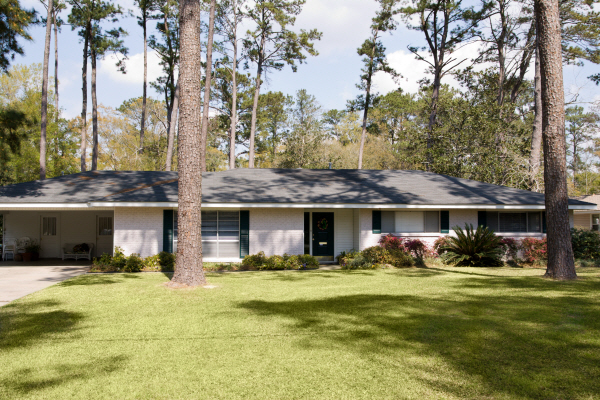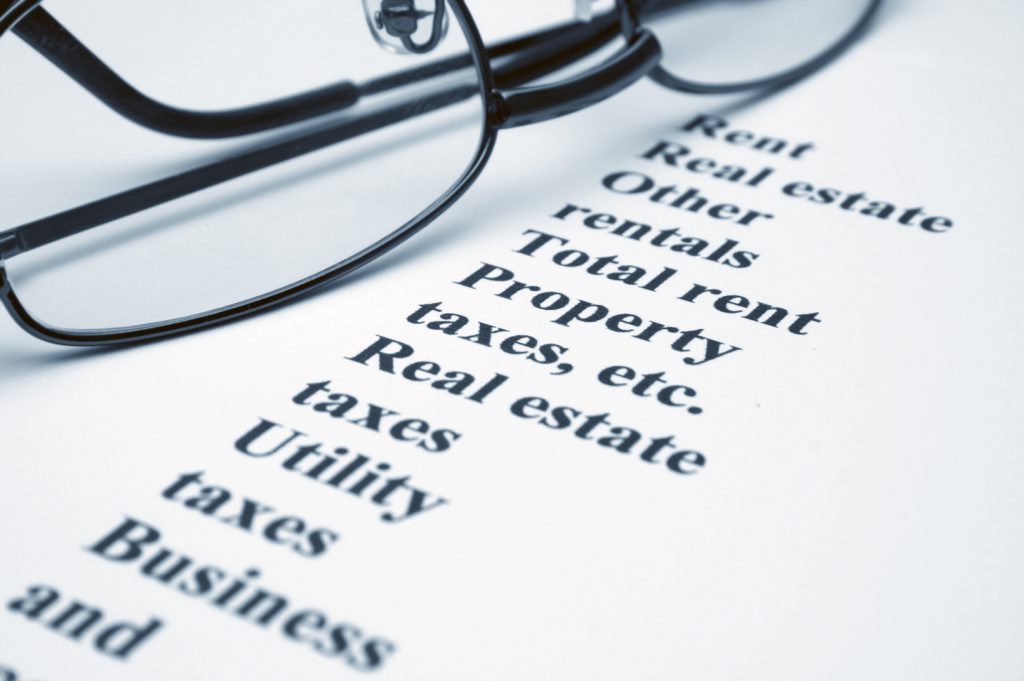
This article summarizes some key California rental laws applicable to residential rental units.
We’ve used the Official State Statutes and other online sources cited below to research this information and it should be a good starting point in learning about the law.
With that said, our summary is not intended to be exhaustive or a substitute for qualified legal advice. Laws and statutes are always subject to change, and may even vary from county to county or city to city.
You are responsible for performing your own research and complying with all laws applicable to your unique situation.
If you have legal questions or concerns, we recommend consulting with the appropriate government agencies and/or a qualified lawyer in your area. Your local or state bar association may have a referral service that can help you find a lawyer with experience in landlord-tenant law.
Official Rules and Regulations
- Cal. Civ Code §§ 1925 – 1954 – Title 5: Hiring of Real Property (scroll down)
- Cal. Civ Code §§ 1961 – 1962.7 – Title 5: Chapter 4: Identification of Property Owners (Scroll Down)
- Cal. Code of Civil Procedure – Table of Contents
- California Health and Safety Code – Table of Contents
- California Department of Consumer Affairs – Landlord Tenant Rules
- A Guide to Residential Tenants’ and Landlords’ Rights and Responsibilities (PDF)
Details:
Security Deposit:
- Security Deposit Maximum: Two months’ rent for unfurnished dwellings; 3 months’ rent if furnished dwellings. (Civ. Code §§ 1950.5 and 1940.5g)
- Security Deposit Interest: No state-wide statute, but 15 (or so) localities have rent control ordinances that require you to pay interest, including Los Angeles. (reference)
- Separate Security Deposit Bank Account: No Statute
- Pet Deposits and Additional Non-Refundable Fees: Not Allowed (Civ. Code §§ 1950.5m)
- Deadline for Returning Security Deposit: 21 days (Civ. Code §§ 1950.5g)
- Security Deposit can be Withheld: (handbook)
- For unpaid rent;
- For cleaning the rental unit when the tenant moves out, but only to make the unit as clean as it was when the tenant first moved in;
- For repair of damages, other than normal wear and tear, caused by the tenant or the tenant’s guests; and
- If the lease or rental agreement allows it, for the cost of restoring or replacing furniture, furnishings, or other items of personal property (including keys), other than because of normal wear and tear.
- Require Written Description/Itemized List of Damages and Charges: Yes. Receipts and documentation not needed to accompany the itemized list of repairs if repairs and cleaning cost less than $126. (Civ. Code §§ 1950.5g 4A)
- Record Keeping of Deposit Withholdings: No Statute
- Failure to Comply: A bad faith claim or retention by a landlord may subject the landlord to statutory damages of up to twice the amount of the security, in addition to actual damages. (Civ. Code §§ 1950.5(l))
Lease, Rent & Fees:
- Rent is Due: Unless there is a contract to the contrary, and the lease is for less than one year, rent is due at the end of the month. Most leases state that rent is due at the beginning of the month. (Civ. Code §§ 1947) and (Civ. Code §§ 1962)
- Payment Methods: Landlord must allow at least one form of payment that is neither cash nor electronic funds transfer, unless tenant has had an insuffienct funds payment, or stopped payment on a money order. Then the landlord can require payments to be paid in cash. (Civ. Code §§ 1947.3(1-2))
- Rent Increase Notice: 30 days if rent increase is less than 10 percent of the lowest amount of rent charged during the last 12 months. 60 days if rent increase is more than 10 percent of the lowest amount of rent charged during the last 12 months. (Civ. Code §§ 827(b)(2-3))
- Late Fees: Allowed, but they must be “reasonable” and obey rent control laws, and are only enforceable if specified in the lease. (handbook)
- Application Fees: The maximum fee is adjusted each year based on changes in the Consumer Price Index since January 1, 1998. In 2012, the maximum allowable fee is $44.51 (Civ. Code §§ 1950.6(b)). Use Cozy to avoid charging application fees because the tenant pays for the credit report directly.
- Prepaid Rent: Landlord is allowed to collect one month’s pre-paid rent (first month’s rent) plus two or three months’ security deposit. (handbook)
- Returned Check Fees: Equal to the actual bank fee. Or landlord can charge a flat “service” fee which is $25 for the first occurrence, and $35 for each occurrence thereafter (handbook). I recommend using Cozy to collect rent online to nearly eradicate late payments.
- Tenant Allowed to Withhold Rent for Failure to Provide Essential Services (Water, Heat, etc.): Yes, because the property is under the “implied warranty of habitability.” (handbook)
- Tenant Allowed to Repair and Deduct Rent: Yes, but not more than the cost of one month’s rent, and tenant cannot use this remedy more than twice in a 12-month period. (Civ. Code §§ 1942)
- Landlord Allowed to Recover Court and Attorney’s Fees: Yes (Civ. Code §§ 789.3d)
- Landlord Must Make a Reasonable Attempt to Mitigate Damages to Lessee, including an Attempt to Rerent: Yes (Civ. Code §§ 1951.2)
Notices and Entry:
- Notice to Terminate Tenancy – Fixed End Date in Lease: No notice is needed as the lease simply expires. I recommend giving 60 days notice anyway.
- Notice to Terminate Any Periodic Lease of a Year or More – If ALL tenants have lived there longer than a year, the landlord is required to give 60 days notice. (handbook)
- Notice to Terminate a Periodic Lease – Month-to-Month: Landlord is required to give 30 days notice. Tenant is required to give 30 days notice. (Civ. Code §§ 1946)
- Notice to Terminate a Periodic Lease – Week-to-week: Landlord is required to give 30 days notice. Tenant is required to give seven days notice. (handbook)
- Notice to Terminate Lease due to Sale of Property: For periodic tenancies only (example: month-to-month), 30 days notice if ALL of the following are true: (Civ. Code §§ 1946.1) (handbook)
- The landlord has contracted to sell the rental unit to another person who intends to occupy it for at least a year after the tenancy ends.
- The landlord must have opened escrow with a licensed escrow agent or real estate broker, and
- The landlord must have given 30-day notice no later than 120 days after opening escrow, and
- The landlord must not previously have given you a 30-day or 60-day notice, and
- The rental unit must be one that can be sold separately from any other dwelling unit. (For example, a house or a condominium can be sold separately from another dwelling unit.)
Note: A landlord can only end a periodic tenancy when a property or unit is sold, and not a fixed-term tenancy that has not yet expired.
- Notice of date/time of Move-Out Inspection: 48 hours (Civ. Code §§ 1950.5(f))
- Eviction Notice for Nonpayment: Three days (Civ. Procedure Code §§ 1161(2))
- Eviction Notice for Lease Violation: Three days to remedy lease violation or landlord can file eviction (Civ. Procedure Code §§ 1161(3)). Landlord can also terminate the lease for subletting without permission or illegal activity on the premise. (Civ. Procedure Code §§ 1161(4))
- Required Notice before Entry: 24 hours (Civ. Code §§ 1954a)
- Entry Allowed with Notice for Maintenance and Repairs (non-emergency): 24 hours (Civ. Code §§ 1954a)
- Emergency Entry Allowed without Notice: Yes (Civ. Code §§ 1954b)
- Entry Allowed During Tenant’s Extended Absence: No (Civ. Code §§ 1954)
- Notice to Tenants for Pesticide Use: No Statute
- Lockouts Allowed: No (Civ. Code §§ 789.3b(1))
- Utility Shut-offs Allowed: No (Civ. Code §§ 789.3a)
Disclosures and Miscellaneous Notes:
- Landlord Must Accept First Qualified Applicant – The 2012 Fair Housing Handbook of California says on page 24, “The landlord should take the time to check out the information and make a selection based on the first qualified applicant(s),” although there is no statute to support this. It’s recommended but not law.
- Copy of Lease: Provide a copy of the rental agreement or lease to the tenant within 15 days of its execution by the tenant. (Civ. Code §§ 1962(4))
- Utilities: Landlord must disclose if utilities that service tenant’s unit also service other areas (such as common foyers), and disclose the manner in which costs will be fairly divided up. (Civ. Code §§ 1940.9) Landlord must also provide a formula for dividing up utilities when utilities are split among multiple tenants.
- San Francisco Utilities: Landlords must provide heat that can maintain a room temperature of 68 degrees. This level of heat must be provided for at least 13 hours, specifically from 5-11 AM and 3-10 PM.
- Move-In Condition: Landlord is not required to provide a Move-In Condition Checklist for the Tenants to complete. However, it is recommended and extremely helpful should you ever go to court over physical damages to the dwelling.
- Mold: Landlord must disclose, prior to lease signing, knowledge of any mold in the dwelling that exceeds safety limits or poses a health concern. Landlord must distribute a State Department of Health Services consumer handbook once it is developed and approved. (Health & Safety Code §§ 26147 and Civ. Code §§ 1941.7)
- Demolishment: If a landlord or agent has applied for a permit to demolish a rental unit, the landlord must provide written notice to prospective tenants before accepting any money. (Civ. Code §§ 1940.6)
- Ordnances: Landlord must disclose the locations of former ordnances (weapons and artillery)in the neighborhood. (Civ. Code §§ 1940.7)
- Sexual Offenders: Landlords are required to include the following language in the lease:
“Notice: Pursuant to Section 290.46 of the Penal Code, information about specified registered sex offenders is made available to the public via an Internet Web site maintained by the Department of Justice at www.meganslaw.ca.gov. Depending on an offender’s criminal history, this information will include either the address at which the offender resides or the community of residence and zip code in which he or she resides.” (Civ. Code §§ 2079.10a) - Pests Disclosures: At lease signing, Landlord must disclose any pests control contracts or disclosures received by pest control companies. If the premise is being treated for pests, landlord must disclose the pesticides used and their active ingredients, and any warnings associated with them. (Civ. Code §§ 1940.8, and Business and Professional Code §§ 8538)
- Smoking: If the landlord limits or prohibits smoking, landlord must include a clause that specifies the areas on or in the premise where smoking is prohibited. (Civ. Code §§ 1947.5)
- Proof of Domestic Violence Status: Landlord is entitled to proof/documentation of domestic violence status of the tenant if the tenant claims they are a victim. (Civ. Code §§ 1941.5, 1941.6, 1941.7)
- Locks: Landlords must change the locks if requested by a domestic violence victim and proof of court order is given. (Civ. Code §§ 1941.5 and 1941.6)
- Special Treatment: A victim may terminate a lease with 14 days notice and proof of victim status. (Civ. Code §§ 1946.7(d)) A landlord cannot end or refuse to renew a tenancy based upon the fact that tenant or a member of tenant’s household is a victim of a documented act of domestic violence, sexual assault, or stalking. (Civ. Procedure Code §§ 1161.3)
- Abandoned Property: The rules are lengthy and specific, please read Civ. Code §§ 1965, 1980 to 1991.
- Retaliation: Landlord must not terminate a lease, increase rent, decrease services, cause a lessee to quit involuntarily, or bring an action to recover possession to a tenant who has filed an official complaint to a Government Authority, been involved in a tenant’s organization, or exercised a legal right. Courts will assume “retaliation” by landlord if negative action is taken on the tenant within 180 days (six months) after any of the prior tenant actions. (Civ. Code §§ 1942.5) It will also be considered retaliation if the landlord acts negatively within six months after any of the following:
- Using the repair and deduct remedy, or telling the landlord that the tenant will use the repair and deduct remedy.
- Complaining about the condition of the rental unit to the landlord, or to an appropriate public agency after giving the landlord notice.
- Filing a lawsuit or beginning arbitration based on the condition of the rental unit.
- Causing an appropriate public agency to inspect the rental unit or to issue a citation to the landlord.
Court Related:
- Small Claims Court Limits: $10,000, however landlord may not file a suit for over $2,500 more than twice a year. (Civ. Procedure Code §§ 116.110 to 116.950)
- Eviction Cases Allowed: No (handbook)
- Small Claims Court Limits – Los Angeles: $10,000
- Small Claims Court Limits – San Diego: $10,000 (How to File a Small Claims Case booklet)
- Small Claims Court Limits – Orange County: $10,000
- California Courts – Judicial Branch – Small Claims
- The Small Claims Court – A Guide to its Practical Use (PDF)
Business Licenses:
- Business License required: No state-wide statute, but local cities and counties may have regulations and requirements. Check with your local governing authority.
Credit to Lucas Hall
Lucas is the Chief Landlordologist at Cozy. He has been a successful landlord for over 10 years, with dozens of happy tenants and a profitable income property portfolio.

newstarrealty.com
















